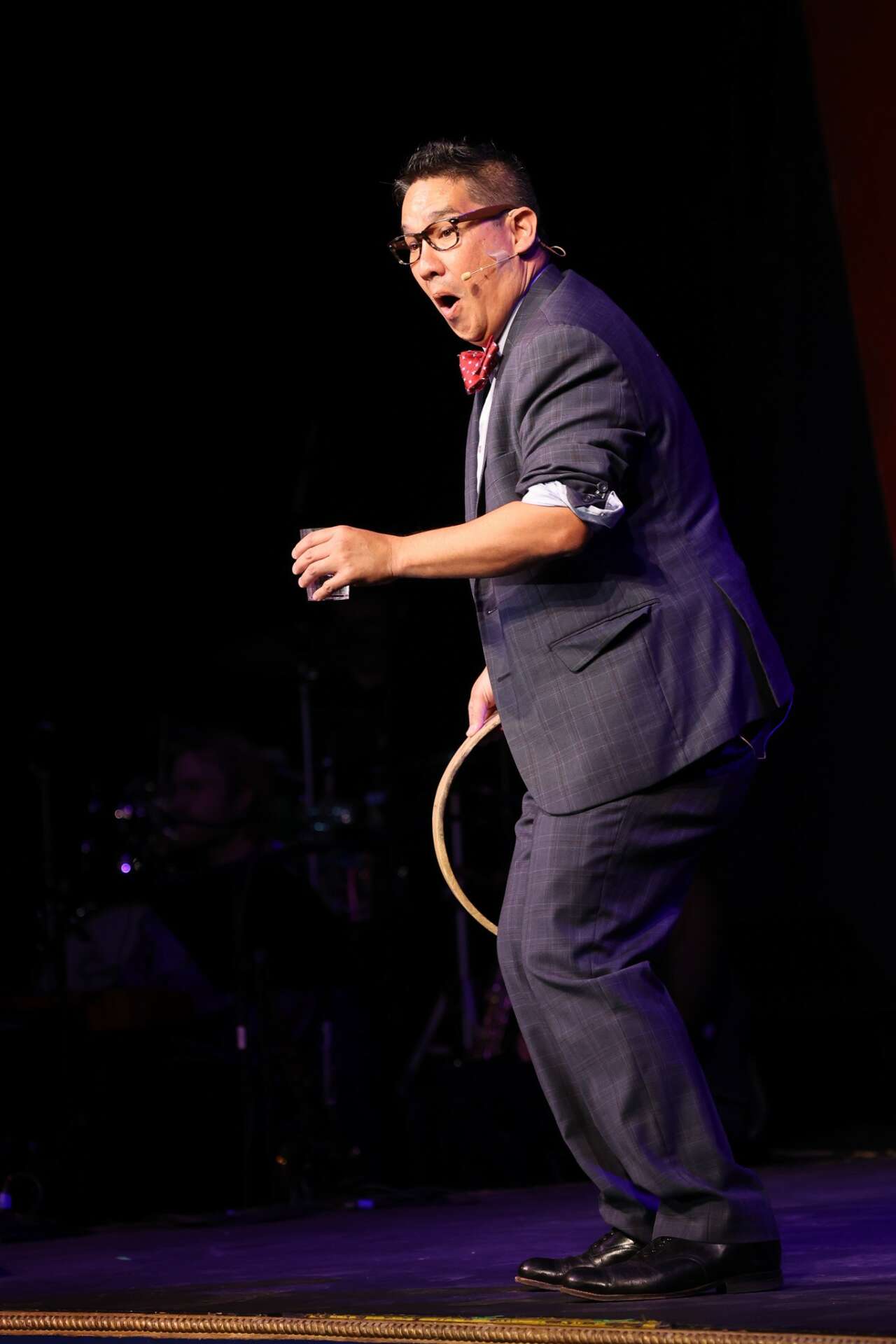We caught up with the brilliant and insightful Louie Foxx a few weeks ago and have shared our conversation below.
Louie , appreciate you joining us today. Have you been able to earn a full-time living from your creative work? If so, can you walk us through your journey and how you made it happen? Was it like that from day one? If not, what were some of the major steps and milestones and do you think you could have sped up the process somehow knowing what you know now?
When I was a teenager in the early 1990’s I knew some magic tricks and needed a place to perform as I had already burnt all of my material with my friends and classmates. We didn’t have much money, so I built a little table I could do magic tricks on from some scrap wood I found (in retrospect, I probably stole the wood from a scrap pile in someone’s yard). I then rode a bus for about a hour into downtown Seattle and went to the historic Pike Place Market to try my hand at busking.
I was doing some pretty advanced stuff for a 14 year old, but lacked a lot of showmanship. What was encouraging was that I was getting $10-$15 in my hat per show, which was great for a kid at that time. I suspect that most of that money was simply because of my young age and not because my show was any good.
From that day on, I knew that I could make a living doing this, I just needed places to perform. Before the internet existed, you had to hear about places to perform from other performers or luck into them. This is the biggest secret to success as a performer, having a network of other performers to share information and referrals with. Some of my biggest “breaks” were from a performer friend recommending me for a gig they couldn’t do. Your friends know what you’re ready for and what you’re not ready for and they won’t (hopefully) refer you to something you’ll fail at.



Louie , love having you share your insights with us. Before we ask you more questions, maybe you can take a moment to introduce yourself to our readers who might have missed our earlier conversations?
When I was a kid I saw a magic show and thought that’s what I want to do. I started taking the bus to the library and wore out the three magic books that they had!
The turning point for me was when I started creating my own tricks and routines. I started to stand out from the pack of local magicians who all did pretty much the same tricks. I stopped being a commodity and turned myself into a unique product. Creating a unique show is a much harder road to take especially when you’re starting out as you’re creating from the ground up. The people who gave me advice to stick to standard stuff have all plateaued in their careers, there’s a ceiling to the amount of opportunities you have when you’re one of a hundred acts that all do the “linking ring trick”, however if there’s only one person that does what you do, you’re biggest competition is yourself and how hard you work on yourself.
The thing that no one ever taught me was how to work on my show. I had to figure it out and developed a system called “The 6 R’s” which is a list of actions that all start with the letter R that I go through when working on new or existing material.
When I’m onstage, you are getting 100% me and the great shows are amazing as I know the audiences are liking me and my art, not something that someone else thought of and I’m simply standing there going through the motions. On the other side of that, having a bad show is really rough because it means the audience doesn’t like me and my art. When I was younger and not doing my own material, it was easy to walk away from a bad show as it was someone else they didn’t like.
My dopey little ideas have gotten me on TV shows like The CW Network’s Masters of Illusion and America’s Got Talent because I’m a unique act!



Are there any books, videos, essays or other resources that have significantly impacted your management and entrepreneurial thinking and philosophy?
One book that really changed my life is The Artist’s Way by Julia Cameron. A friend of mine suggested it and I ordered a copy. It’s a 12 week (I think) program with daily/weekly things that you do. I’ll be first to say that the book is super hippie, but I committed to the whole book and did the tasks, even when they seemed dumb.
At the end of the 12 weeks I built the habit of writing every morning, not just when I needed to solve a problem and spending more time in my own head without outside stimulation (like music).
Looking back, are there any resources you wish you knew about earlier in your creative journey?
I wish that I had learned that every industry has a trade show or conference. If you want to work within any industry, you need to know about it, who works in it and what is expected of those people. Blindly sending out promotional material doesn’t help if it doesn’t meet what’s expected in that industry.
Figure out where you want to do your art and become a part of the community of people that buy or support that art.
Contact Info:
- Website: www.LouieFoxx.com
- Instagram: @louiefoxx
- Facebook: facebook.com/louiefoxxshow
- Youtube: @louiefoxx
- Other: tiktok @louiefoxx


